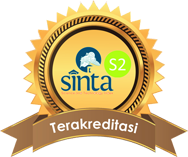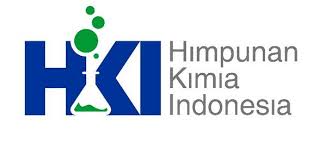KUALITAS KETERAMPILAN PROSES SAINS SISWA YANG TERBIASA TEACHER-CENTERED LEARNING MELALUI PROCESS ORIENTED GUIDED INQUIRY LEARNING
DOI:
https://doi.org/10.15575/jtk.v2i2.1878Keywords:
keterampilan proses sains, pendekatan pembelajaran, pembelajaran kimiaAbstract
Banyak peneliti yang telah menyarankan bahwa siswa harus dilibatkan dalam proses penemuan konsep kimia melalui Keterampilan Proses Sains (KPS) dan pembelajaran inkuiri. Namun, menjadi tantangan tersendiri jika KPS dan pembelajaran inkuiri diterapkan pada siswa yang telah terbiasa pada pembelajaran berpusat pada guru, belum pernah sama sekali mengenal KPS dan pembelajaran inkuiri, salah satunya adalah siswa kelas XI IPA MAN 1 Pati. Oleh karena itu melalui penelitian ini bagaimana kualitas KPS melalui Process Oriented Guided Inquiry Learning (POGIL) pada materi asam basa dan larutan penyangga pada siswa tersebut akan diuraikan. Kualitas KPS tersebut diperoleh melalui mixed methods dengan desain embedded concurrent. Data penelitian diperoleh melalui teknik observasi, wawancara, dan catatan lapangan. Berdasarkan data hasil penelitian yang diperoleh secara keseluruhan menunjukkan bahwa siswa kelas XI IPA MAN 1 Pati mempunyai KPS yang cukup baik dengan persentase rata-rata 67,34%. Setiap aspek KPS diantaranya pada aspek mengamati 85,00% (Baik); aspek mengklasifikasi 77,12% (Baik); aspek menggunakan alat dan bahan 80,62% (Baik); aspek mengukur 55,00% (Kurang); aspek menginterpretasi data 66,00% (Cukup); aspek mengkomunikasikan 58,78% (Cukup); dan aspek menyimpulkan 47,62% (Kurang). Kemampuan siswa pada aspek mengukur dan menyimpulkan belum memuaskan pada kegiatan praktikum asam basa dan larutan penyangga yang telah dilaksanakan.
Â
References
Avianti, R., dan Yonata, B., 2015, Keterampilan Proses Sains Siswa Melalui Penerapan model Pembelajaran Kooperatif Materi Asam Basa Kelas Xi Sman 8 Surabaya, UNESA Journal of Chemical Education, 4, 224-231.
Afiyanti, N. A., Cahyono, E., dan Soepardjo, 2014, keefektifan inkuiri terbimbing berorientasi green chemistry terhadap keterampilan proses sains, Jurnal Inovasi Pendidikan Kimia, 8, 1281 – 1288.
Ajaja, O.P., 2007, Teaching methods across diciplines, Agbor: All-Well Publishers.
Ash, D., 2000, The process skills of inquiry , chapter 7, Foundation: A Monograph for Proffesionals in Science, Mathematics, and Technology Education, National Science Foundation.
Basu-Dutt, S., Slappey, C., and Bartley, J. K., Making Chemistry Relevant to the Engineering Major, Journal of Chemical Education, 87, 1206-1212.
Bretz, S. L., Galloway, K. R., Orzel, J., and Gross, R., 2016, Faculty Goals, Inquiry, and Meaningful Learning in the Undergraduate Chemistry Laboratory, Chapter 6, ACS Symposium Series; American Chemical Society: Washington, DC.
Bretz, S. L., 2001, Novak’s Theory of Education: Human Constructivism and Meaningful Learning, Journal of Chemical Education, 78, 1107-1115. Brotherton, P. N., and Preece, P. F. W., 1996, Teaching Science Process Skills, International Journal of Science Education, 18, 65-74.
Canelas,D. A., Hill, D. L., and Novicki, A., 2017, Cooperative learning in organic chemistry increases student assessment of learning gains in key transferable skills, Chemistry Education Research and Practice, 18, 441-456.
Chase, A., Pakhira, D., and Stains, M., 2013, Implementing Process-Oriented, Guided-Inquiry Learning for the First Time: Adaptations and Short-Term Impacts on Students Attitude and Performance, Journal of Chemical Education, 90, 409-416.
Chebii, R., Wachanga, S., Kiboss, J., 2012, Effects of science process skills mastering learning Approach on students’ Acquisition of selected chemistry practical skills in school, Creative Education, 3, 1291-1296.
Chi, M. T., H., 2009, Active-ConstructiveInteractive: A Conceptual Framework for Differentiating Learning Activities, Topics in Cognitive Science , 1, 73–105
Chi, M. T., H., and Wylie, R., 2014, The ICAP Framework: Linking Cognitive Engagement to Active Learning Outcomes, Educational Psychologist, 4, 219-243.
Cigdemoglu, C., Arslan, H. O., and Cam, A., 2017, Argumentation to foster preservice science teachers’ knowledge, competency, and attitude on the domains of chemical literacy of acids and bases, Chemistry Education Research and Practice, 18, 288-303.
Coil, D., Wenderoth, M. P., Cunningham, M., and Dirks, C., 2010, Teaching the Process of Science: Faculty Perceptions and an Effective Methodology, CBE-Life Science Education, 9, 524-535.
Conway, C. J., 2014, Effects of Guided Inquiry versus Lecture Instruction on Final Grade Distribution in a One-Semester Organic and Biochemistry Course, Journal of Chemical Education, 91, 480- 483.
Cooper A. K., and Oliver-Hoyo, M. T., 2016, Argument construction in understanding noncovalent interactions: A Comparation of two argumentation frameworks, Chemistry Education Research and Practice, 17, 1006-1018.
Coulson, E.H., 1972, Some Recent Developments in Chemistry Teaching in Schools, Chemical Society Reviews, 1, 495-521.
Creswell, J. W., & Plano Clark, V. L. (2011). Designing and conducting mixed methods research (2nd ed.). Thousand Oaks, CA: Sage
Das, R.S., 1985, science teaching in schools, New Delhi: Sterling Publishers.
Durmaz, H., and Mutlu, S., 2016, The effect of an instructional intervention on elementary students' science process skills, The Journal of Educational Research, 1-13.
Ebenezer, J. V., 1992, Making Chemistry Learning More Meaningful, Journal of Chemical Education, 78, 464-467.
Farrell, J. J., Moog, R. S., and Spencer, J. N., 1999, A Guided Inquiry General Chemistry Course, Journal of Chemical Education, 76, 570-574.
Fitriyani, R., Haryani, S., dan Susatyo, E. B., 2017, Pengaruh Model Inkuiri Terbimbing Terhadap Keterampilan Proses Sains Pada Materi Kelarutan dan Hasil Kali Kelarutan, Jurnal Inovasi Pendidikan Kimia, 11, 1957 – 1970.
Gaddis, B. A., and Schoffstall, A. M., 2007, Incorporating Guided-Inquiry Learning into the Organic Chemistry Laboratory, Journal of Chemical Education, 8, 848- 851.
Gillies, R. M., Nichols, K., Burgh, G., & Haynes, M. (2014). Primary students’ scientific reasoning and discourse during cooperative inquiry-based science activities. International Journal of Educational Research, 63, 127–140.
Goodey, N. M., and Talgar, C. P., 2016, Guided inquiry in a biochemistry laboratory course improves experimental design ability, Chemistry Education Research and Practice, 17, 1127-1144.
Gürses, A., Çetinkaya, S., Doğar, C., and Şahin, E., 2015, Determination Of Levels Of Use Of Basic Process Skills Of High School Students, Procedia-Social and Behavioral Sciences, 191, 644 – 650.
Hale-Hanes, C., 2015, Promoting students development of models and scientific inquiry skills in acid-base chemistry: an important skill development in preparation for AP chemistry, Journal of Chemical education, 92, 1320-1324.
Hardiyanti, P. C., Wardani, S., dan Nurhayati, S., 2017, Keefektifan Model Problem Based Learning Untuk meningkatkan Keterampilan Proses Sains Siswa, Jurnal Inovasi Pendidikan Kimia, 11, 1862- 1671.
Hein, S. M., 2012, Positive Impacts Using POGIL in Organic Chemistry, Journal of Chemical Education, 89, 800-804
Hodson, D., 1990, a critical look at practical work in school science, School Science Review, 71, 33-40.
Hofstein, A., and Lunetta, V. N., 1982, The Role of the Laboratory in Science Teaching: Neglected Aspects of Research, Review of Educational Research, 52, 201-217
Hofstein, A., and Lunetta, V. N., 2004, The laboaratory in science education: Foundations for the twenty-first century, Science Education, 88, 28–54. Hofstein, A., 2004, The Laboratory in Chemistry Education: Thirty Years of Experience With Developments, Implementation, and Research, Chemistry Education Research and Practice, 5, 247-264.
Hunnicutt, S. S., Grushow, A., and Whitnell, R., 2015, Guided-Inquiry Experiments for Physical Chemistry: The POGIL-PCL Model, Journal of Chemical Education, 92, 262-268.
Kirik, O. T., and Boz Y., 2012, Cooperative learning instruction for conceptual change in the concepts of chemical kinetics, Chemistry Education Research and Practice, 13, 221–236.
Laius, A., Valdmann, A., & Rannikmae, M. (2015). A Comparison of transferable skills development in Estonian school biology at gymnasium level. Procedia— Social and Behavioral Sciences, 177, 320–324.
Oliveira, A. W. (2010). Improving teacher questioning in science inquiry discussions through professional development. Journal of Research in Science Teaching, 47(4), 422–453.
Prayitno, B.A., Corebima, D., susilo, H., Zubaidah, S., and Ramli, M., 2017, Closing the science process skills gap between students with high and low level academic achievment, Journal of Baltic Science Education, 16, 266-277.
Padilla, M.J., 1990, The science process skills, National association for research in science teaching, https://www.narst.org/publications/rese arch/skill.cfm (diakses juli 2017).
Paixão, M.F., and Cachapuz, A., 2000, Mass Conservation In Chemical Reactions: The Development Of An Innovative Teaching Strategy Based On The History And Philosophy Of Science, Chemistry Education: Research and Practice In Europe, 1, 201-215.
Paul R, Elder L. 2008. Critical thinking: the art of Socratic questioning, part III. J Dev Educ. 31, 34–35.
Preece, P. F. W., and Brothertion, P. N., 1997, Teaching science process skills: longterm effects on science achievement, International Journal of Science education, 19, 895-901.
Rahmawati, R., Haryani, S., dan Kasmui, 2014, Penerapan Praktikum Berbasis Inkuiri Untuk Meningkatkan Keterampilan Proses Sains Siswa, Jurnal Inovasi Pendidikan Kimia, 8, 1390-1397.
Reid, N. And Shah, I., 2007, The role of laboratory work in university chemistry, Chemistry Education Research and Practice, 8, 172-185.
Renken, M. D., and Nunez, N., 2010, Evidence for Improved Conclusion Accuracy after Reading about Rather than Conducting a Belief-inconsistent Simple Physics Experiment, Applied Cognitive Psychology, 24, 792-811.
Riley, J.P., 1979, The influence of Hands-on science process training on pre-service Teachers’ acquisition of process skills and attitude. toward science and science teaching, Journal of Research in Science Teaching, 16, 373-384.
Saab, N., Joolingen, W. R., and Van HoutWolters, H. A. M., 2005, Communication in collaborative discovery learning, British Journal of Educational Psychology, 75, 603-621.
Soltis, R., Verlinden, N., Kruger, N., and Carroll, A., 2015, Process-Oriented Guided Inquiry Learning Strategy Enhances Students’ Higher Level Thinking Skills in a Pharmaceutical Sciences Course, American Journal of Pharmaceutical Education, 79, 1-8.
Strawitz, B. M., and Malone, M. R., 1987, preservice teachers' acqcisition and retention of integrated science process skills: a comparison of teacher-directed and self-instructional strategies, Journal of Research in Science Teaching, 24, 53- 60.
Sukardi. 2015. Metodologi Penelitian Pendidikan Kompetensi dan Praktiknya. Cetakan ke-14. Jakarta: BumiAksara.
Tofade, T., Elsner, J., and Haines, S. T. 2013. Best Practice Strategies for Effective Use of Questions as a Teaching Tool. American Journal of Pharmaceutical Education. 77, 1-9.
Tomasevic, B., and Trivic, D., 2014, Creativity in teaching chemistry: how much support does the curriculum provide?, Chemistry Education Research and Practice, 15, 239-252.
Treagust, D. F. (2007). General instructional methods and strategies. In S. K. Abell & N. G. Lederman (Eds.), Handbook of research on science education (pp. 373– 391). Aarhus: Lawrence Erlbaum Associates.
Tuckwell, W., 1865, Science-Teaching in Schools, Nature, 1, 18-20.
Vaino, K., Holbrook, J., and Rannikmae, M., 2012, Stimulating students’ intrinsic motivation for learning chemistry through the use of context-based learning modules, Chemistry Education Research and Practice, 13, 410–419.
Veal, W. R., Taylor, D., and Rogers, A. L., 2009, Using Self-Reflection to Increase Science Process skills in the General Chemistry Laboratory, Journal of Chemical Education, 86, 393-398.
Wardani, S., Widodo, A. T., dan Priyani, N. E., 2009, Peningkatan Hasil Belajar Siswa Melalui Pendekatan Keterampilan Proses Sains Berorientasi ProblemBased Instruction, Jurnal Inovasi Pendidikan Kimia, 3, 391-399.
Weaver, M. G., Samoshin, A. V., Lewis, R. B., and Gainer, M. J., 2016, Developing Students’ Critical Thinking, Problem Solving, and Analysis Skills in an Inquiry-Based Synthetic Organic Laboratory Course, Journal of Chemical Education, 93, 847–851.
Webb, N. M., 2009, The teacher’s role in promoting collaborative dialogue in the classroom, British Journal of Educational Psychology, 79, 1-28.
Wheeler, G.F., 2000, Three faces of inquiry in J.M. Intress and E.H. van zel (eds), inquiring into inquiry learning and teaching in science, washington DC: American association for the Advancement of science.
Widoyoko, Eko Potro. 2009. Evaluasi Program Pembelajaran Panduan Praktis Bagi Pendidikan dan Calon Pendidik. Yogyakarta: Pustaka Belajar.
Woods-McConney, A., Wosnitza, M., and Sturrock, K. L., 2016, Inquiry and groups: student interactions in cooperative inquiry-based science, International Journal of Science Education, 38, 842- 860.
Yang Y. C, Newby T. J, Bill R. L. 2005. Using Socratic questioning to promote critical thinking skills through asynchronous discussion forums in distance learning environments. Am J Distance Educ. 19, 163–181.
Zohar, A., 2010, Result or conclusion? Students' differentiation between experimentalresults and conclusions, Journal of Biological Education, 32, 53- 59.
Downloads
Published
How to Cite
Issue
Section
Citation Check
License
Authors who publish with this journal agree to the following terms:
- Authors retain copyright and grant the journal right of first publication with the work simultaneously licensed under a Creative Commons Attribution-ShareAlike that allows others to share the work with an acknowledgement of the work's authorship and initial publication in this journal.
- Authors are able to enter into separate, additional contractual arrangements for the non-exclusive distribution of the journal's published version of the work (e.g., post it to an institutional repository or publish it in a book), with an acknowledgement of its initial publication in this journal.
- Authors are permitted and encouraged to post their work online (e.g., in institutional repositories or on their website) prior to and during the submission process, as it can lead to productive exchanges, as well as earlier and greater citation of published work (See The Effect of Open Access).









